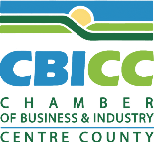Creativity
Sometimes the answer to the most complex problem comes from applying a different perspective or way of thinking. Let the creative minds behind our code look at your problem and see if a solution is often closer than you think.
Communication
Solutions come from listening and asking the right questions. Everything changes over time, but staying in regular communication avoids problems and keeps your tech project on course.
Experience
Peace of mind comes from knowing that the experience gained from working on hundreds of projects over time means that your IT project is in good hands.
Ready to Find The Right IT Solution For You?
Our team works closely with you to identify challenges, unlock opportunities, and implement the most effective technology to drive results.
AI Services
We help you apply AI in practical ways to gain insights, streamline operations, and support better decision-making
Custom Software Solutions/MVP
We write custom software to modernize existing systems and support your business functions.
API Integration
We can integrate your off-the-shelf software, utilizing API configurations into your custom software.
Web Application Development
Our team of expert developers creates high-performance, scalable, and secure web apps.
Mobile Application
Our team of developers can create, design, and rebuild any application to attract more customers.
IT Staffing
We work with businesses of all sizes and industries to provide customized staffing solutions that meet their specific needs.
IT Networking & Infrastructure
Our recruiting team sources top IT talent both locally and from across the US.
Get in the Cloud
We deliver secure, reliable cloud services tailored to your business, so your data stays protected, and your operations stay smooth
Onshore America
Choose our experienced, U.S.-based software developers to create a technology solution to meet your needs.
How We've Helped
Let's Schedule a Free Consultation
Fill out the form below, and we'll help you overcome roadblocks and launch smarter.












